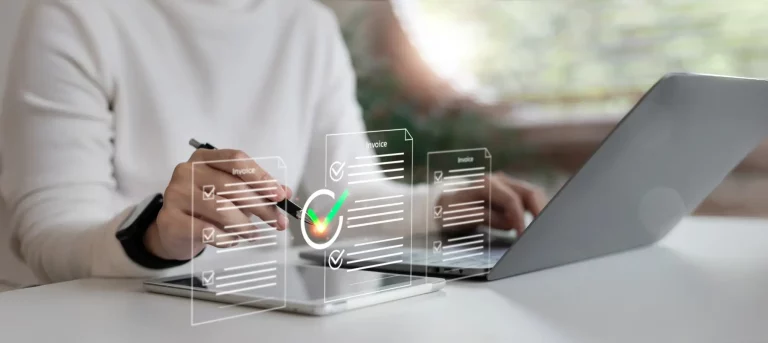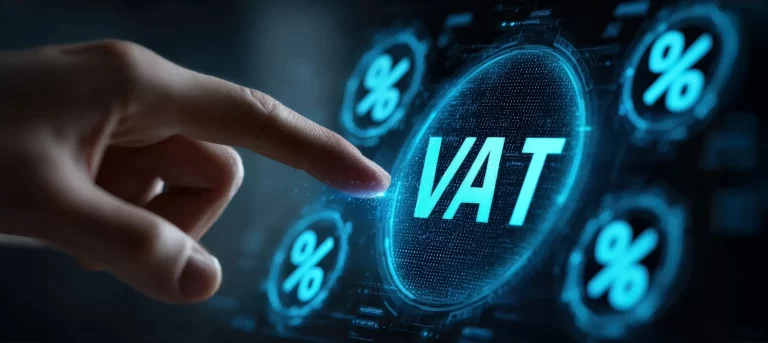E-invoicing is evolving at lightning speed. Whereas in the past it was mainly about moving from paper to digital, today it’s all about automation, efficiency and compliance. A concept that is increasingly emerging within this context is self-billing. But how exactly does that work? And more importantly, how does self-billing fit within Peppol, the network that is becoming the international standard for e-invoicing?
What can you read on this page?
What is self-billing?
In self-billing, the customer takes over the supplier’s role in the billing process. This means that the buyer itself prepares and sends an invoice to the supplier, rather than the other way around. So the supplier no longer has to issue an invoice, but receives one from the customer.
This model is interesting when the buyer has the most or the most reliable transaction data. Consider retail, logistics or manufacturing, for example, where the buyer often has better visibility into volumes, deliveries and prices.
Self-billing within the legal framework of e-invoicing
Self-billing is legally recognized, but strict rules apply. In Europe, the VAT Directive stipulates that:
- the supplier and customer must have a prior agreement on self-billing,
- the supplier must explicitly accept the invoices,
- and the invoices must comply with the same VAT and e-invoicing rules as regular invoices.
So with the rise of mandatory e-invoicing in many EU countries, it is important that self-billing invoices comply with technical and legal standards, such as UBL or CII.
Is self-billing possible in Peppol
The answer is yes. Peppol supports self-billing documents through the standard Peppol BIS Billing formats. A self-billing invoice follows the same structure as a regular e-invoice, with an additional indication that the invoice was prepared by the customer.
This also allows self-billing to be fully integrated within existing Peppol flows. Suppliers receive the invoice directly through the Peppol network in accordance with applicable international standards.
Does every Access Point offer self-billing?
Although Peppol technically supports self-billing, this does not mean that every Access Point effectively offers this functionality. For many parties, processing self-billing in the UBL structure is complex and support is limited to standard invoices.
At Nymus, this is different. We have designed our solution so that self-billing can be processed correctly and efficiently within Peppol. This allows companies working with self-billing to continue to automate their processes and still meet all legal and technical requirements.
Several customers are already successfully using self-billing through Nymus today, proving that it is not only theoretically possible, but also practically workable and scalable.
Why is self-billing interesting for large enterprises?
For large enterprises, self-billing offers distinct advantages:
- Efficiency: suppliers no longer need to create invoices, eliminating duplication of effort.
- Better data quality: invoices are based on customer data, often more reliable and consistent.
- Faster payments: fewer discussions and corrections, thus shorter turnaround time.
- Cost savings: less administrative overhead on both sides.
In industries with thousands of transactions per month, this can have a huge impact.
Risks, concerns and future prospects
Self-billing offers many benefits, but there are also significant risks if not properly implemented within e-invoicing and Peppol:
- Choose the appropriate Access Point: Not every Peppol Access Point can process self-billing correctly. The technical complexity in the UBL structure is too high for many parties. An incorrectly chosen Access Point can result in invoices not being sent or received correctly, bringing the entire e-invoicing process to a halt.
- Compliance risks: self-billing invoices must comply with all VAT and e-invoicing regulations. Errors in the UBL or missing mandatory data can lead to rejection by tax authorities or administrative corrections.
- Synchronization of data: Self-billing works well only if the data at buyer and supplier match completely. Differences in prices, quantities or contract agreements can lead to discussions or delays.
- Supplier acceptance: suppliers must explicitly agree to self-billing. Without clear agreements, legal and operational problems can arise.
- Managing exceptions: Not every invoice is standard; deviating cases must be caught manually or through smart workflows to avoid errors and delays.
Future Prospect
Self-billing is only likely to become more important in the coming years. With the increasing obligation for e-invoicing and e-reporting within the EU (such as under ViDA), the need for automated and reliable invoice flows is growing. Large companies that invest in self-billing today will soon be one step ahead: they will save time, reduce errors and be fully ready for future international standards.
Conclusion
Self-billing is a powerful complement to e-invoicing. It offers large companies the opportunity to make invoicing processes more efficient, consistent and faster. Within the legal framework of e-invoicing, self-billing is perfectly applicable, as long as there are clear agreements with suppliers.
Thanks to Peppol, self-billing becomes not only technically possible, but also scalable and internationally deployable. So for organizations that want to optimize their invoicing processes, self-billing through Peppol can be a real game-changer.
FAQ:
Self-billing is a process in which the buyer prepares and sends the invoice on behalf of the supplier. The supplier receives the invoice instead of creating it himself.
Yes, but conditions apply: there must be a prior agreement between buyer and supplier, the supplier must accept the invoices, and the invoices must comply with VAT and e-invoicing rules.
Yes, Peppol supports self-billing through the BIS Billing formats. Self-billing invoices follow the same structure as regular e-invoices, with an indication that the invoice was prepared by the customer.
No, many Access Points cannot properly handle the technical complexity of self-billing in UBL. It is important to choose an Access Point that fully supports self-billing, such as Nymus.
Self-billing saves time and costs, improves data quality, speeds up payments and makes billing processes more efficient and scalable, especially with thousands of transactions per month.
Download our free e-invoicing whitepaper!
HIGHLIGHTED ARTICLES



